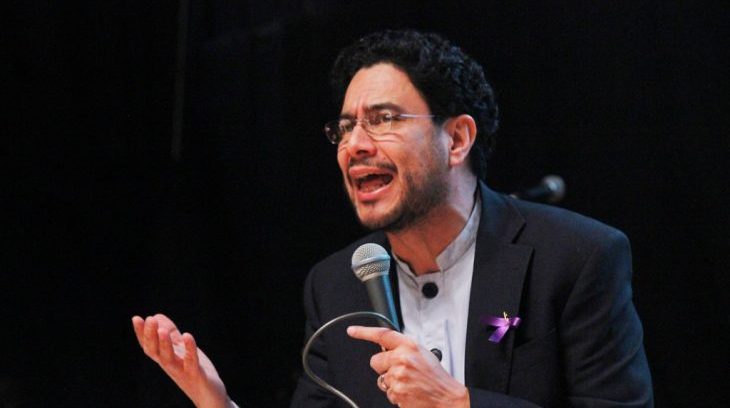

Colombian progressive senator Iván Cepeda has received multiple death threats since the 28 July guilty verdict against hard-right former president Álvaro Uribe for witness tampering and bribery. The court ruling came after a more than decade-long legal case that saw Uribe attempt to incriminate Cepeda in 2014 before coming under investigation himself. On 1 August, Judge Sandra Heredia sentenced Uribe to 12 years’ house arrest, though the former president has launched an appeal.
As one of the Colombian left’s most prominent figures, Cepeda is not a stranger to abuse and aggression. However, the court verdict has seen a significant escalation in death threats and hostility from those close to Uribe and his supporters. Uribe’s son Tomás Uribe Moreno recently posted on social media that Cepeda should hand himself over to US authorities on baseless smears of association with guerrilla groups, a longstanding tactic employed by the far-right to legitimise aggression towards progressives and social activists.
‘Since the day of Judge Heredia’s decision, [the threats] have returned almost every day,’ Cepeda told French press. In 1994, Cepeda’s father, Manuel Cepeda was assassinated in Bogota, part of a state-led campaign to wipe out the left-wing Patriotic Union (UP) political party, formed in the 1985 peace process between the Colombian government and the FARC guerrillas. More than 5,000 UP members and supporters were killed in the subsequent years.
Human rights groups and victims of the armed conflict, which intensified during Uribe’s 2002-10 presidency as the army and paramilitary groups committed extreme human rights abuses against civilians, hope that the Uribe case can advance the historic quest for truth and justice over the former president’s role in abuses, while in office and also during his periods as Mayor of Medellin in 1982 and as Governor of Antioquia in the 1990s. Uribe and his brother Santiago have been implicated in the creation and expansion of paramilitary groups which targeted civilians, activists and trade unionists.
‘Sooner or later, justice is going to reach Uribe, because there are so many incidents, so many victims, so much ignominy,’ said Cepeda. The senator, who is a member of the Historic Pact coalition of President Gustavo Petro and has been suggested by many progressives as a presidential candidate, also said that Uribe has encouraged hostility towards judicial institutions with the tacit support of the United States government. On 6 August, British and Irish trade unions and politicians issued a joint statement of support for the Colombian justice system following an attack on the court ruling by US Secretary of State Marco Rubio and far-right Republican congress members.
Rubio’s interference has raised concerns over the Trump administration’s stance towards Colombia ahead of the 2026 presidential election, in which progressive candidates will compete against hard-right figures for the presidency. There is no doubt the US would prefer a return to a neoliberal and militaristic form of governance that would be fully aligned to US economic and foreign policy. In an example of its treatment of progressive governments that divert from US interests, the US recently sanctioned Brazilian judges who are investigating far-right former president Jair Bolsonaro over his role in an attempted coup in 2022. It has also imposed high tariffs of up to 50 per cent on Brazilian imports.